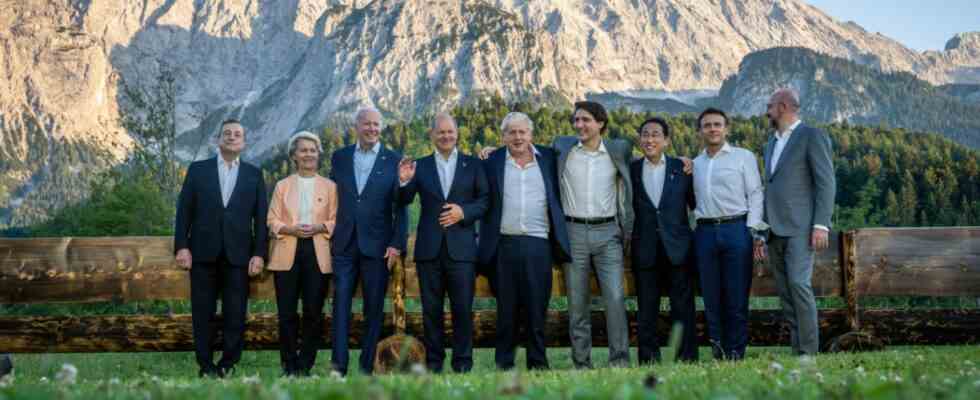Are you in a club? No, not a skat or bowling club – but one to which only a select circle belongs. One that is not easy to get into, that expects certain services from its members, but in return secures exclusive advantages. In economics there is even a “club theory” for such associations, and their special advantages are called “club goods”. And such a club should now also exist for the climate.
At least that’s what the chancellor thinks.
In any case, at the meeting of the seven large old industrial nations in Elmau, he wrested the G7’s commitment to “stand firmly behind the goals of an open and cooperative international climate club”. They stand so firmly behind this club that they refrained from further details. And they didn’t set up the climate club right away, they want to set it up by the end of the year. Or more precisely: “work towards” the foundation. But that is very solid.
All of this says more about the state of international climate protection than the seven in Elmau may have realized. On the one hand, because they have always been a club: namely the club of those who built their prosperity on the rubble that their climate club is now supposed to help eliminate. In the last century, no one contributed more to global warming than the developed world club. The only thing he hasn’t always taken very seriously is the responsibility for it.
On the other hand, because Olaf Scholz’ climate club will now do what has been happening with international agreements on the climate for decades: Either they have teeth – but then only a few countries will take part. Or everyone joins in – but then they have no teeth.
How much countries do for the climate is not decided at G-7 summits
The idea that the US Nobel Prize winner William D. Nordhaus came up with for the climate club in 2015 was not toothless at all. All members have committed themselves to introducing comparable prices for climate-damaging emissions. In return, they could trade freely with each other. On the other hand, those who did not join this club could only have exported to the countries of the club with hefty climate tariffs – which in turn could be a good reason to join. Many people want to belong to a good club.
After the days in Elmau, it will not come to that. Countries like the USA and Japan are too far away from an effective CO₂ price, others fear a trade war too much if such import tariffs really come; like the giant China. It won’t be a “club” in the true sense. But maybe that’s because Olaf Scholz chose the wrong people to found it.
Unfortunately, the situation remains the same: How much countries do for climate protection is not decided at G-7 summits, but in the countries themselves; and there is therefore still a lot of burden on the shoulders of those who fight for more climate protection in their home countries. This also applies to a climate club that is worthy of the name: each country would have to create the conditions for itself. Apparently, even among the big industrialized countries, most of them stick to Groucho Marx’s old saying: I don’t want to belong to a club that accepts people like me.
(This text is from the weekly Newsletter climate friday you here for free can order.)

